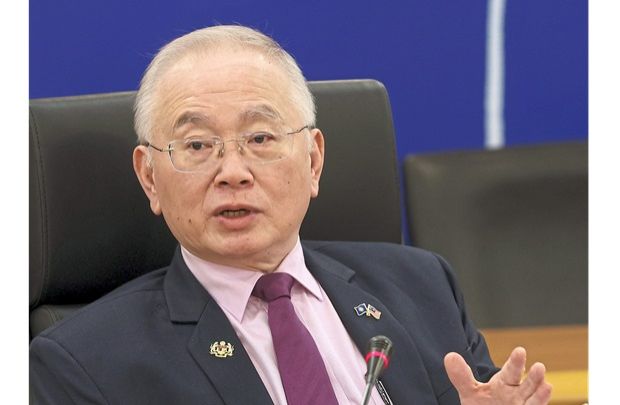
PETALING JAYA: The government’s efforts to collate detailed records of phone calls and internet usage from telecommunications firms are a violation of the people’s right to their personal data, said Datuk Dr Wee Ka Siong.
He also said there is no need to have such detailed information for facilitating policymaking in the information, communications and technology (ICT) sector, and the tourism sector, as clarified by the Malaysian Communications and Multimedia Commission (MCMC).
“This is not a question of whether we trust in the current government or not. The question is, why does the government want to collect such detailed information on its citizens?
“Today, we say it’s to study tourism statistics. We don’t know what it’ll be for tomorrow.
“You want to calculate tourists? You want to calculate active broadband users? You don’t need the people’s personal data. Aggregate data is enough,” Dr Wee said in a posting on his Facebook page on Saturday (June 7).
It was previously reported that, according to industry sources, the government in April had ordered telcos in Malaysia to hand over detailed records of phone calls and internet logs for the first three months of this year, supposedly for the government’s “Mobile Phone Data” project.
The records demanded purportedly include information about call logs, IP call records, location, latitude and longitude.
It was also reported that if the telcos failed to comply, it would be considered an offence under the Communications and Multimedia Act, carrying a penalty of RM20,000 fine or six months’ jail.
MCMC has since explained that this move is to support evidence-based policymaking in two key sectors, i.e. the ICT and tourism sectors.
The commission also stressed that the data will be anonymised before it is submitted to them and that no individual subscriber can be identified through the data collected.
“In both cases, no individual subscriber can be identified through the data collected,” MCMC said.
However, Dr Wee said anonymising the data is not enough to maintain the privacy of the users, especially in an increasingly connected world.
“If you’re collecting data on who we call, how long we talk, our Internet IP, and our location, including latitude and longitude – with such consistent location data showing the exact time and day, anyone with access to this data can easily match it back to our identities.
“Our identities can be uncovered very easily,” he said.
On top of that, he added, there is also data from the mobile app MySejahtera, e-wallets, CCTVs, Touch n’ Go and bank records which can be cross-checked to identify someone.
MCMC had also previously said they engaged extensively with all telcos over the past two years on the safe handover of the data, but Dr Wee questioned the need to threaten the telcos if this is true.
“If it is true that this is all safe and it has all been agreed upon for two years, why is there a need to threaten the telcos?”
Ultimately, he said, this is not about politics but about the rights of the people.
“Our personal data is not the right of any government, whether today, tomorrow or those to come.
“When the government starts collecting such detailed data, that has already crossed the line.
“The Malaysian people must raise this issue. Our data is not a plaything.”


